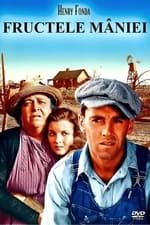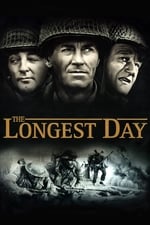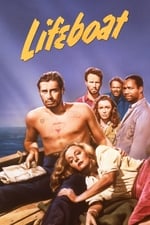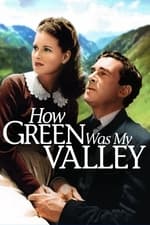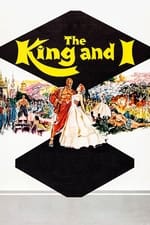Informations personnelles
Célèbre pour Production
Apparitions connues 293
Genre Homme
Date de naissance 5 septembre 1902
Date de décès 22 décembre 1979 (77 ans)
Lieu de naissance Wahoo, Nebraska, USA
Alias
- Darryl Francis Zanuck
- Darryl Zanuck
- Mark Canfield
- Melville Crossman
- Gregory Rogers
Score de contenu
100
Superbe ! Cette fiche semble complète !
Connectez-vous afin de
signaler un problème.
Biographie
Darryl Francis Zanuck (September 5, 1902 – December 22, 1979) was an American film producer and studio executive; he earlier contributed stories for films starting in the silent era. He played a major part in the Hollywood studio system as one of its longest survivors (the length of his career was rivaled only by that of Adolph Zukor). He produced three films that won the Academy Award for Best Picture during his tenure.
Zanuck was born in Wahoo, Nebraska, the son of Sarah Louise (née Torpin), who later married Charles Norton, and Frank Harvey Zanuck, who owned and operated a hotel in Wahoo. He had an older brother, Donald (1893–1903), who died in an accident when he was only 9 years old. Zanuck was of partial Swiss descent, and raised a Protestant. At age six, Zanuck and his mother moved to Los Angeles, where the better climate could improve her poor health. At age eight, he found his first movie job as an extra, but his disapproving father recalled him to Nebraska. In 1917, despite being 15, he deceived a recruiter, joined the United States Army, and served in France with the Nebraska National Guard during World War I.
Upon returning to the US, he worked in many part-time jobs while seeking work as a writer. He found work producing movie plots, and sold his first story in 1922 to William Russell and his second to Irving Thalberg. Screenwriter Frederica Sagor Maas, story editor at Universal Pictures' New York office, stated that one of the stories Zanuck sent out to movie studios around this time was completely plagiarized from another author's work.
Zanuck then worked for Mack Sennett and FBO (where he wrote the serials The Telephone Girl and The Leather Pushers) and took that experience to Warner Bros., where he wrote stories for Rin Tin Tin and under a number of pseudonyms wrote over 40 scripts from 1924 to 1929, including Red Hot Tires (1925) and Old San Francisco (1927). He moved into management in 1929, and became head of production in 1931.
In 1933, Zanuck left Warner Bros. over a salary dispute with studio head Jack L. Warner. A few days later, he partnered with Joseph Schenck to form 20th Century Pictures, Inc. with financial help from Joseph's brother Nicholas Schenck and Louis B. Mayer, president and studio head of Loew's, Inc and its subsidiary Metro-Goldwyn-Mayer, along with William Goetz and Raymond Griffith. 20th Century released its material through United Artists.
During that short time (1933–1935), 20th Century became the most successful independent movie studio of its time, breaking box-office records with 18 of its 19 films, all profitable, including Clive of India, Les Miserables, and The House of Rothschild. After a dispute with United Artists over stock ownership, Schenck and Zanuck negotiated and used their studio to bring the bankrupt Fox studios in 1935 to create Twentieth Century-Fox Film Corporation.
Zanuck was Vice President of Production of this new studio and took a hands-on approach, closely involving himself in scripts, film editing, and producing. ... Source: Article "Darryl F. Zanuck" from Wikipedia in English, licensed under CC-BY-SA 3.0.
Darryl Francis Zanuck (September 5, 1902 – December 22, 1979) was an American film producer and studio executive; he earlier contributed stories for films starting in the silent era. He played a major part in the Hollywood studio system as one of its longest survivors (the length of his career was rivaled only by that of Adolph Zukor). He produced three films that won the Academy Award for Best Picture during his tenure.
Zanuck was born in Wahoo, Nebraska, the son of Sarah Louise (née Torpin), who later married Charles Norton, and Frank Harvey Zanuck, who owned and operated a hotel in Wahoo. He had an older brother, Donald (1893–1903), who died in an accident when he was only 9 years old. Zanuck was of partial Swiss descent, and raised a Protestant. At age six, Zanuck and his mother moved to Los Angeles, where the better climate could improve her poor health. At age eight, he found his first movie job as an extra, but his disapproving father recalled him to Nebraska. In 1917, despite being 15, he deceived a recruiter, joined the United States Army, and served in France with the Nebraska National Guard during World War I.
Upon returning to the US, he worked in many part-time jobs while seeking work as a writer. He found work producing movie plots, and sold his first story in 1922 to William Russell and his second to Irving Thalberg. Screenwriter Frederica Sagor Maas, story editor at Universal Pictures' New York office, stated that one of the stories Zanuck sent out to movie studios around this time was completely plagiarized from another author's work.
Zanuck then worked for Mack Sennett and FBO (where he wrote the serials The Telephone Girl and The Leather Pushers) and took that experience to Warner Bros., where he wrote stories for Rin Tin Tin and under a number of pseudonyms wrote over 40 scripts from 1924 to 1929, including Red Hot Tires (1925) and Old San Francisco (1927). He moved into management in 1929, and became head of production in 1931.
In 1933, Zanuck left Warner Bros. over a salary dispute with studio head Jack L. Warner. A few days later, he partnered with Joseph Schenck to form 20th Century Pictures, Inc. with financial help from Joseph's brother Nicholas Schenck and Louis B. Mayer, president and studio head of Loew's, Inc and its subsidiary Metro-Goldwyn-Mayer, along with William Goetz and Raymond Griffith. 20th Century released its material through United Artists.
During that short time (1933–1935), 20th Century became the most successful independent movie studio of its time, breaking box-office records with 18 of its 19 films, all profitable, including Clive of India, Les Miserables, and The House of Rothschild. After a dispute with United Artists over stock ownership, Schenck and Zanuck negotiated and used their studio to bring the bankrupt Fox studios in 1935 to create Twentieth Century-Fox Film Corporation.
Zanuck was Vice President of Production of this new studio and took a hands-on approach, closely involving himself in scripts, film editing, and producing. ... Source: Article "Darryl F. Zanuck" from Wikipedia in English, licensed under CC-BY-SA 3.0.
Production
|
|||||||||||||||||||||||||||||||||||||||||||||||||||||||||
|
|||||||||||||||||||||||||||||||||||||||||||||||||||||||||
|
|||||||||||||||||||||||||||||||||||||||||||||||||||||||||
|
|||||||||||||||||||||||||||||||||||||||||||||||||||||||||
|
|||||||||||||||||||||||||||||||||||||||||||||||||||||||||
|
|||||||||||||||||||||||||||||||||||||||||||||||||||||||||
|
|||||||||||||||||||||||||||||||||||||||||||||||||||||||||
|
|||||||||||||||||||||||||||||||||||||||||||||||||||||||||
|
|||||||||||||||||||||||||||||||||||||||||||||||||||||||||
|
|||||||||||||||||||||||||||||||||||||||||||||||||||||||||
|
|||||||||||||||||||||||||||||||||||||||||||||||||||||||||
|
|||||||||||||||||||||||||||||||||||||||||||||||||||||||||
|
|||||||||||||||||||||||||||||||||||||||||||||||||||||||||
|
|||||||||||||||||||||||||||||||||||||||||||||||||||||||||
|
|||||||||||||||||||||||||||||||||||||||||||||||||||||||||
|
|||||||||||||||||||||||||||||||||||||||||||||||||||||||||
|
|||||||||||||||||||||||||||||||||||||||||||||||||||||||||
|
|||||||||||||||||||||||||||||||||||||||||||||||||||||||||
|
|||||||||||||||||||||||||||||||||||||||||||||||||||||||||
|
|||||||||||||||||||||||||||||||||||||||||||||||||||||||||
|
|||||||||||||||||||||||||||||||||||||||||||||||||||||||||
|
|||||||||||||||||||||||||||||||||||||||||||||||||||||||||
|
|||||||||||||||||||||||||||||||||||||||||||||||||||||||||
|
|||||||||||||||||||||||||||||||||||||||||||||||||||||||||
|
|||||||||||||||||||||||||||||||||||||||||||||||||||||||||
|
|||||||||||||||||||||||||||||||||||||||||||||||||||||||||
|
|||||||||||||||||||||||||||||||||||||||||||||||||||||||||
|
|||||||||||||||||||||||||||||||||||||||||||||||||||||||||
|
|||||||||||||||||||||||||||||||||||||||||||||||||||||||||
|
|||||||||||||||||||||||||||||||||||||||||||||||||||||||||
|
|||||||||||||||||||||||||||||||||||||||||||||||||||||||||
|
|||||||||||||||||||||||||||||||||||||||||||||||||||||||||
|
|||||||||||||||||||||||||||||||||||||||||||||||||||||||||
|
|||||||||||||||||||||||||||||||||||||||||||||||||||||||||
|
|||||||||||||||||||||||||||||||||||||||||||||||||||||||||
|
|||||||||||||||||||||||||||||||||||||||||||||||||||||||||
|
|||||||||||||||||||||||||||||||||||||||||||||||||||||||||
|
|||||||||||||||||||||||||||||||||||||||||||||||||||||||||
|
|||||||||||||||||||||||||||||||||||||||||||||||||||||||||
|
|||||||||||||||||||||||||||||||||||||||||||||||||||||||||
|
Écriture
|
||||||||||||||||||||||||||||||
|
||||||||||||||||||||||||||||||
|
||||||||||||||||||||||||||||||
|
||||||||||||||||||||||||||||||
|
||||||||||||||||||||||||||||||
|
||||||||||||||||||||||||||||||
|
||||||||||||||||||||||||||||||
|
||||||||||||||||||||||||||||||
|
||||||||||||||||||||||||||||||
|
||||||||||||||||||||||||||||||
|
||||||||||||||||||||||||||||||
|
||||||||||||||||||||||||||||||
|
||||||||||||||||||||||||||||||
|
||||||||||||||||||||||||||||||
|
Interprétation
|
||||||
|
||||||
|
||||||
|
||||||
|
||||||
|
||||||
|
||||||
|
||||||
|
||||||
|
||||||
|
||||||
|
||||||
|
||||||
|
||||||
|
||||||
|
Réalisation
|
|||
|
Équipe technique
|


